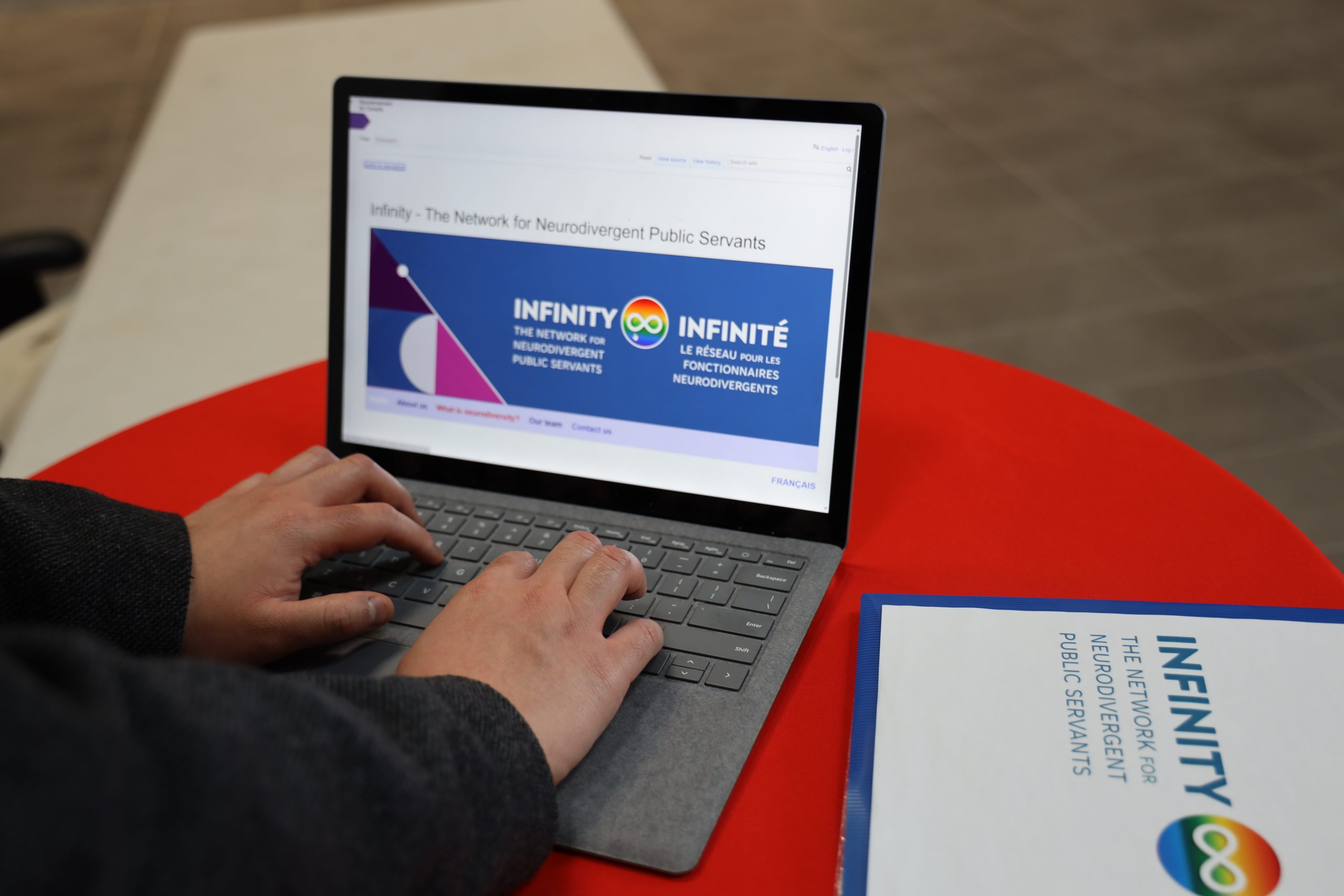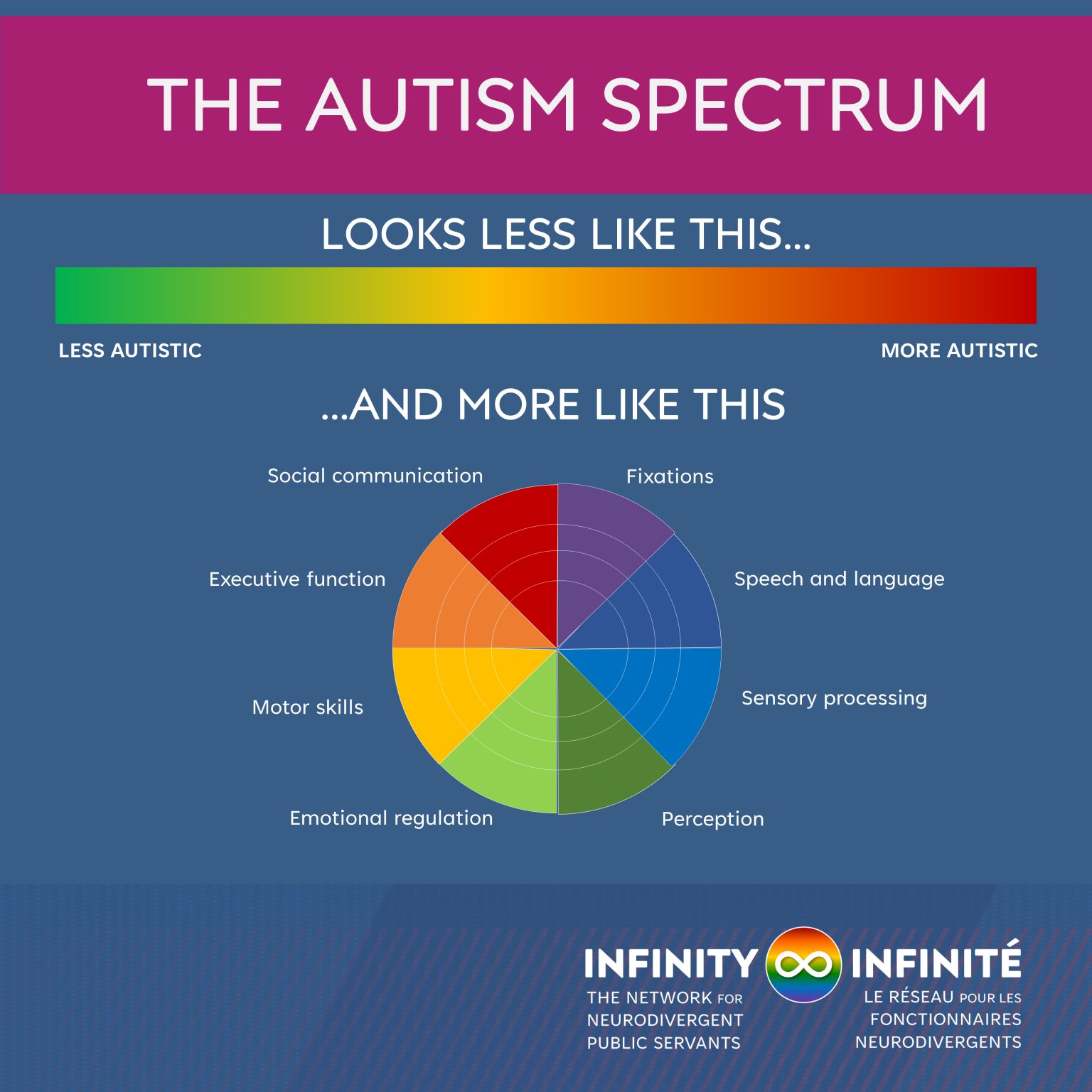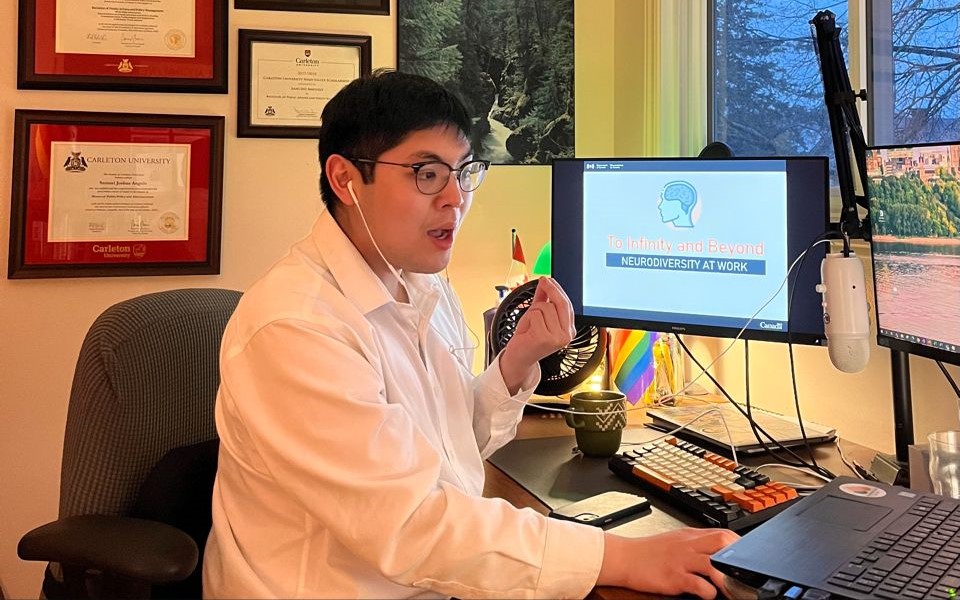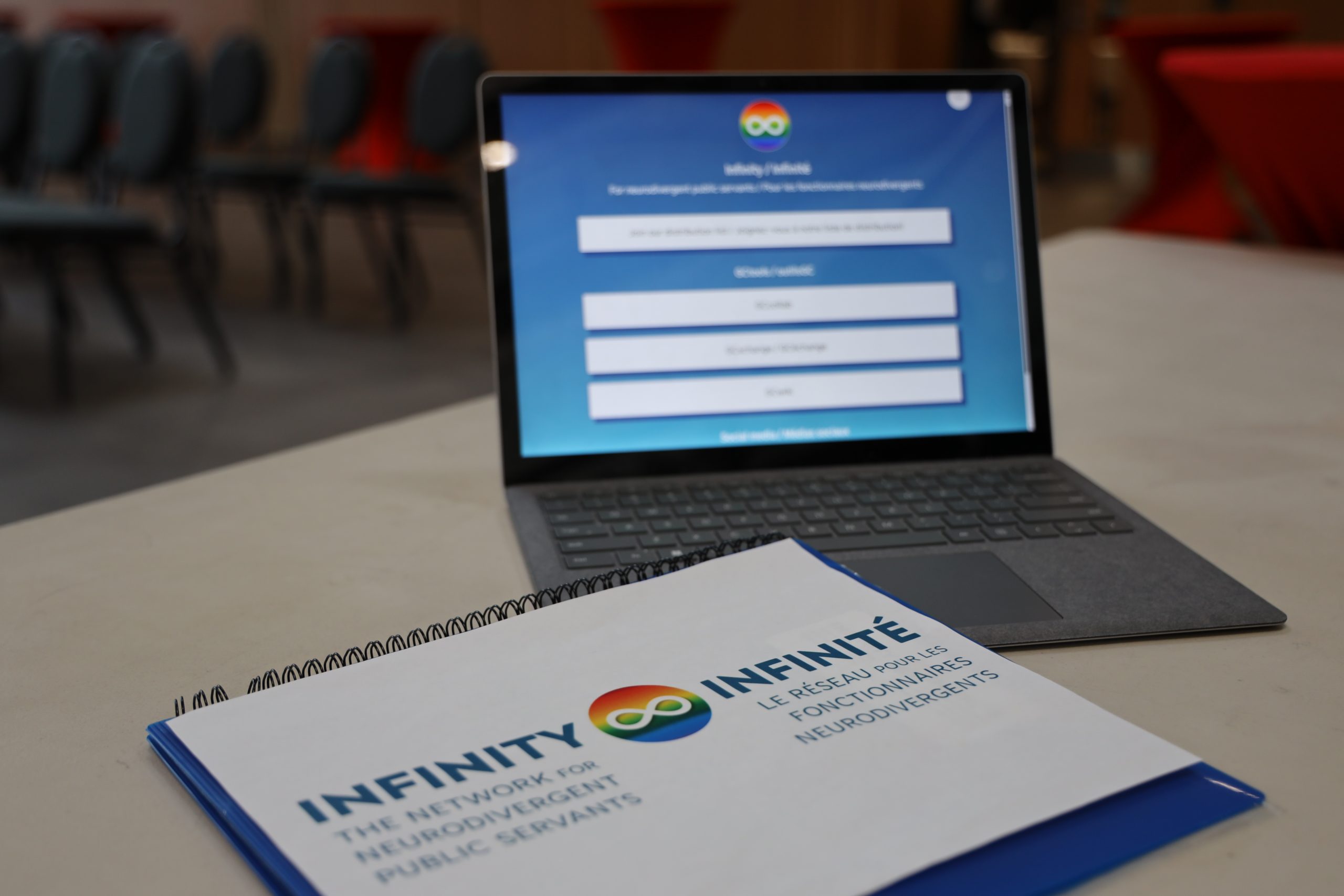By Jena Lynde-Smith
Neurodivergent describes people with cognitive functions that differ from what society considers to be ‘normal,’ encompassing neurological conditions such as autism, attention deficit hyperactivity disorder (ADHD), dyslexia and Tourette’s syndrome. These conditions can manifest as differences in social interaction, communication and sensory processing.
In Canada, the employment landscape for neurodivergent individuals starkly contrasts that of the general population. Only one-third of people with autism are employed compared to the employment rate of 79 per cent for the general population. This disparity is exacerbated by attitudinal barriers. In a recent study, 56 per cent of autistic workers felt they were treated differently upon disclosing their autism at work.
Carleton University alumnus and instructor, Sancho Angulo, who is autistic, is the driving force behind Infinity – a network dedicated to supporting neurodivergent employees in Canada’s federal public service.
“As the nation’s largest employer, Canada’s federal government has the potential to set the stage for diversity and inclusion practices at work – but the first step is awareness,” says Angulo, who graduated from Carleton’s Master of Public Policy and Administration program in 2022.

Sancho Angulo, Carleton public policy alumnus and contract instructor (photo by Brenna Mackay)
A Network for Neurodivergent Employees
Angulo is an acting engagement advisor with the Office of Public Service Accessibility at the Treasury Board of Canada Secretariat. He was inspired to launch Infinity because of his own experiences with workplace discrimination.
“I’ve had people in past organizations I have worked with tell me that I did not have the temperament for leadership, I’ve been passed over for leadership positions on the account of being autistic,” he says.
“I want to make sure that situation – where someone is condescended and excluded based on prejudice – doesn’t happen to other neurodivergent people.”

Infinity supports neurodivergent employees in Canada’s federal public service
Since its inception in 2023, Infinity has grown to have over 1,000 members across 90 federal institutions, becoming the G7’s largest government-wide neurodiversity network. Its core mission: to create a community where neurodivergent public servants are supported and empowered and to spread awareness of their needs in the workplace.
The network identifies the key challenges for neurodivergent people as finding employment, poor treatment from managers and colleagues, lack of support and accommodations, overstimulating environments and inadequate work arrangements. To address this, the network develops resources that can be used to support managers and colleagues with neurodivergent employees. It regularly hosts regular learning events and panel discussions to raise awareness and promote understanding.
“We are slowly but surely developing strategies and competence when it comes to hiring, retaining and advancing those with cognitive disabilities – but there is still work to do,” says Angulo.

Fostering a Sense of Belonging
When it comes to hiring, common practices can prove challenging for neurodivergent individuals. Unclear screening questions and excessive written requirements can impede their likelihood of getting to the interview stage, and during interview may struggle with grasping non-verbal communication cues in a way that can leave a bad first impression.
“Some neurodivergent people also have differences in the way they communicate, in terms of body language, that don’t really match up with what is what neurotypical people are accustomed to,” Angulo explains.
“The ability to grasp common neurotypical ways of nonverbal communication is often seen as an indicator of merit. That can lead to a lot of challenges.”

In addition to its educational lens, Infinity is a space for connection and growth among neurodivergent employees. It holds networking events, provides mentorship and professional development opportunities and maintains several online groups to facilitate connection.
“I am incredibly humbled to be at the helm of this,” Angulo says.
“There are people that because of this network, do not have to take a personal day or stress leave because they no longer feel so alone. They can be much happier and more productive at work – because they know they’re supported.”
As recognition for his work, Angulo was recently named a 2024 Young Impact Leader by Future of Good.

Neurodiversity in the Classroom
Beyond his neurodiversity advocacy, Angulo is a contract instructor in privacy management at Carleton’s School of Public Policy and Administration. His approach to teaching involves creating an open and welcoming classroom environment for students of all abilities. He openly discloses his autism to his students to foster understanding and create a more inclusive learning environment.
“I think people don’t realize that instructors also might have their own accessibility needs that need to be met and considered,” Angulo says.
“So, I put specific things in my syllabus that students should consider. For example, I might not get sarcasm, or I may not establish eye contact.”

Angulo teaches in Carleton’s School of Public Policy and Administration
Angulo sees disclosing his autism as an important part of changing the culture – whether it be in the workplace or the classroom.
“That simple step of saying ‘I am autistic here are my needs as an instructor,’ can be very powerful to neurodivergent students who may be experiencing self-doubt or concerns about where they’re going to go in life,” he explains.
“So many of the challenges I faced are because of the attitudes that people have had towards me being autistic, and rising above that means lifting others while I climb. I can plant trees for people who I may never know but will nonetheless benefit from the work I am doing.”
Looking ahead, Angulo hopes to continue his accessibility work and to expand the reach and impact of Infinity.
“I don’t know what the future holds for me, but I do have aspirations, nonetheless, for something better and brighter for all neurodivergent people across Canada.”

Tuesday, April 9, 2024 in Accessibility, Alumni, Government
Share: Twitter, Facebook



